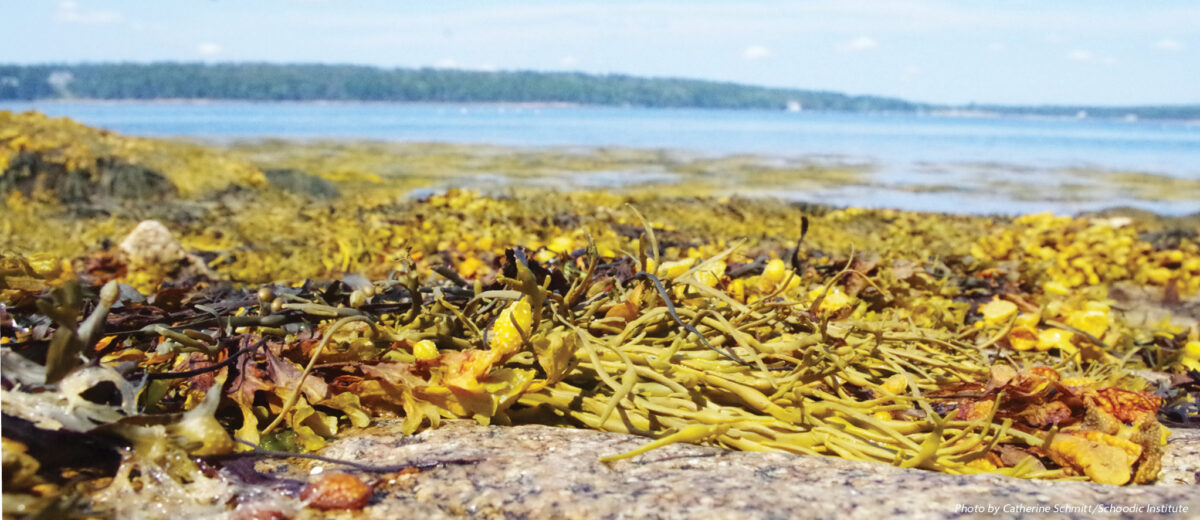People harvest a variety of seaweed (macroalgae) species in Maine, including and especially rockweed (Ascophyllum nodosum). Rockweed grows in abundance along intertidal rocky shores, where it provides habitat for many other species–an ecological function that is important to maintain if harvest is to be sustainable over time. In 2014, the State of Maine drafted a management plan for rockweed, similar to plans for other harvested marine resources. But the rockweed fishery management plan was never officially adopted.
A team of scientists and industry professionals with shared interest in the intertidal zone saw an opportunity to re-examine the management of rockweed harvest to inform and perhaps strengthen the plan while it is still a draft. “We wanted to assess how the state’s draft plan compared with established principles of ecosystem-based management,” said Hannah Webber, marine ecology director at Schoodic Institute.
Ecosystem-based management (EBM) recognizes the full array of interactions within an ecosystem, including humans, rather than considering single issues, species, or ecosystem services in isolation.
Their analysis, published in a special issue of Maine Policy Review on the theme of “Our Shared Ocean,” found that the draft rockweed fishery management plan already has many of the elements of ecosystem-based management.
“The draft plan even has provisions, such as harvester training and a review after five years, that would further an ecosystem approach but have not been included in other ecosystem-based management proposals,” said Webber.
“The current rockweed management plan addresses a number of concerns around overharvesting,” said co-author Stefan Claesson of Nearview, LLC. “However, some additional elements, such as greater transparency in landings data, more information on precisely where seaweed is being harvested, and improvements in biomass estimation would help to facilitate industry development, resource management, and conservation.”
The authors hope their review prompts the state to take action.
“I am hoping the DMR [Department of Marine Resources] will revisit its shelved rockweed management plan, inspired by these common sense EBM principles,” said Shep Erhart of Maine Coast Sea Vegetables. “Implementation would be a significant step forward for Maine, and for other rockweed harvests worldwide, as well as set an example for managing other species.”
Read the full article in Maine Policy Review.
